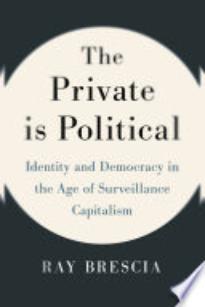2018 School Spending Survey Report
The Private Is Political: Identity and Democracy in the Age of Surveillance Capitalism
COPY ISBN
VERDICT A sound academic analysis of privacy through a theoretical and legal lens.
RELATED
ALREADY A SUBSCRIBER? LOG IN
We are currently offering this content for free. Sign up now to activate your personal profile, where you can save articles for future viewing




Comment Policy:
Comment should not be empty !!!